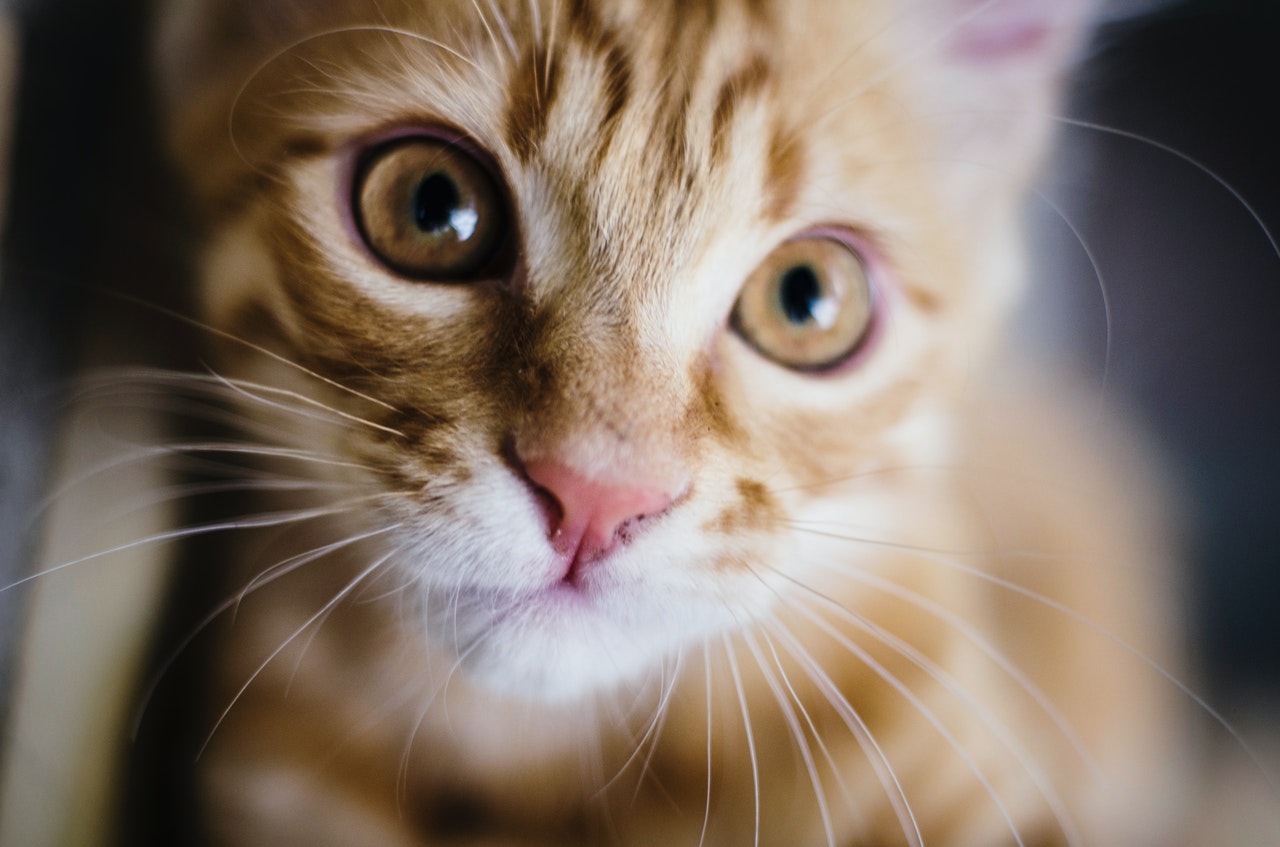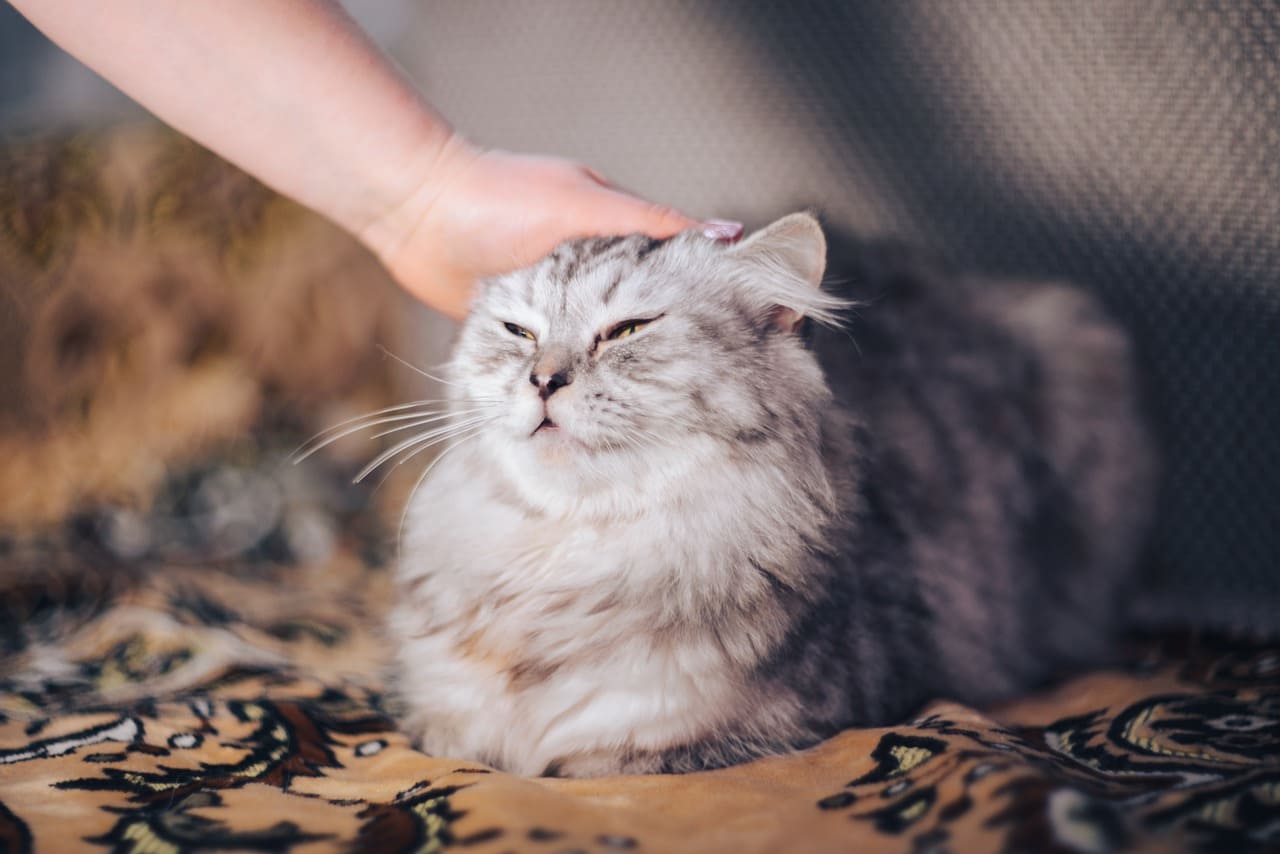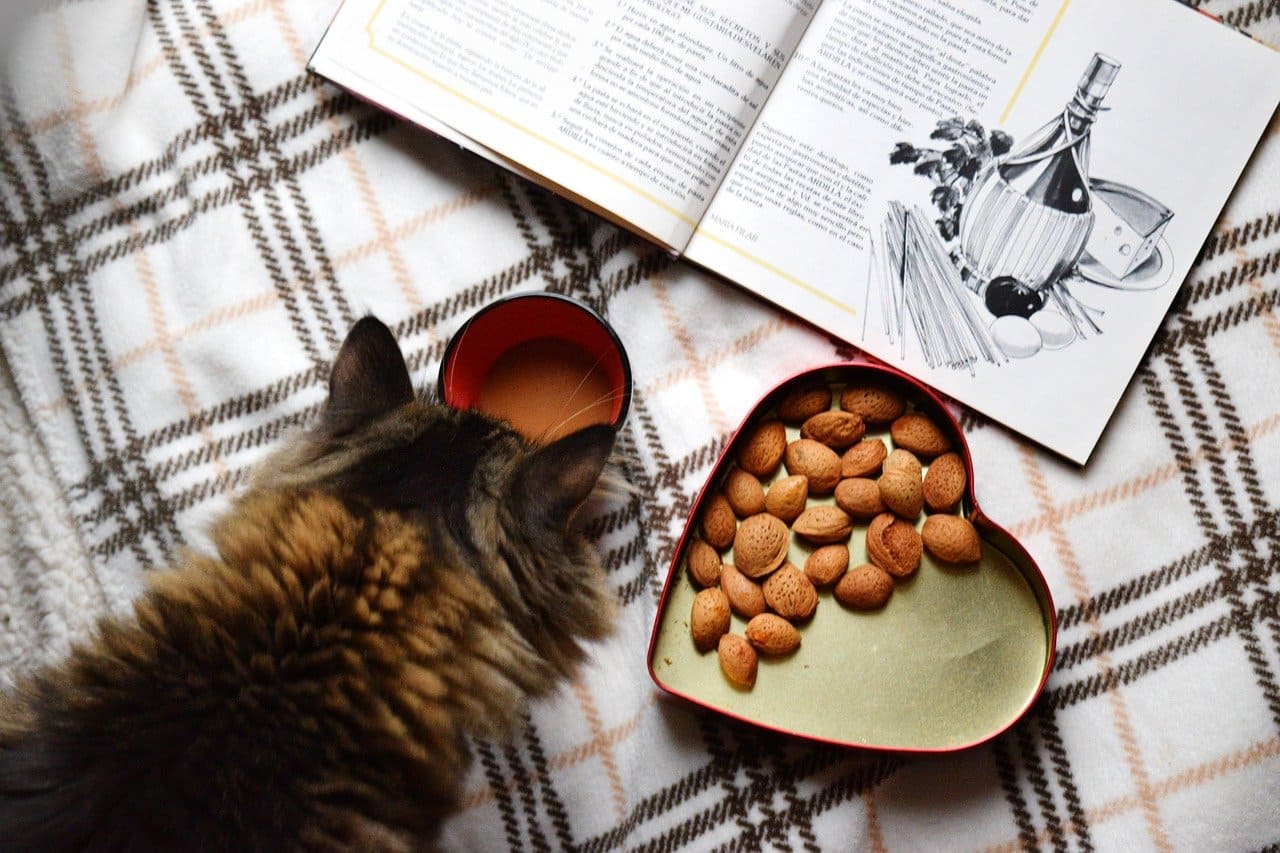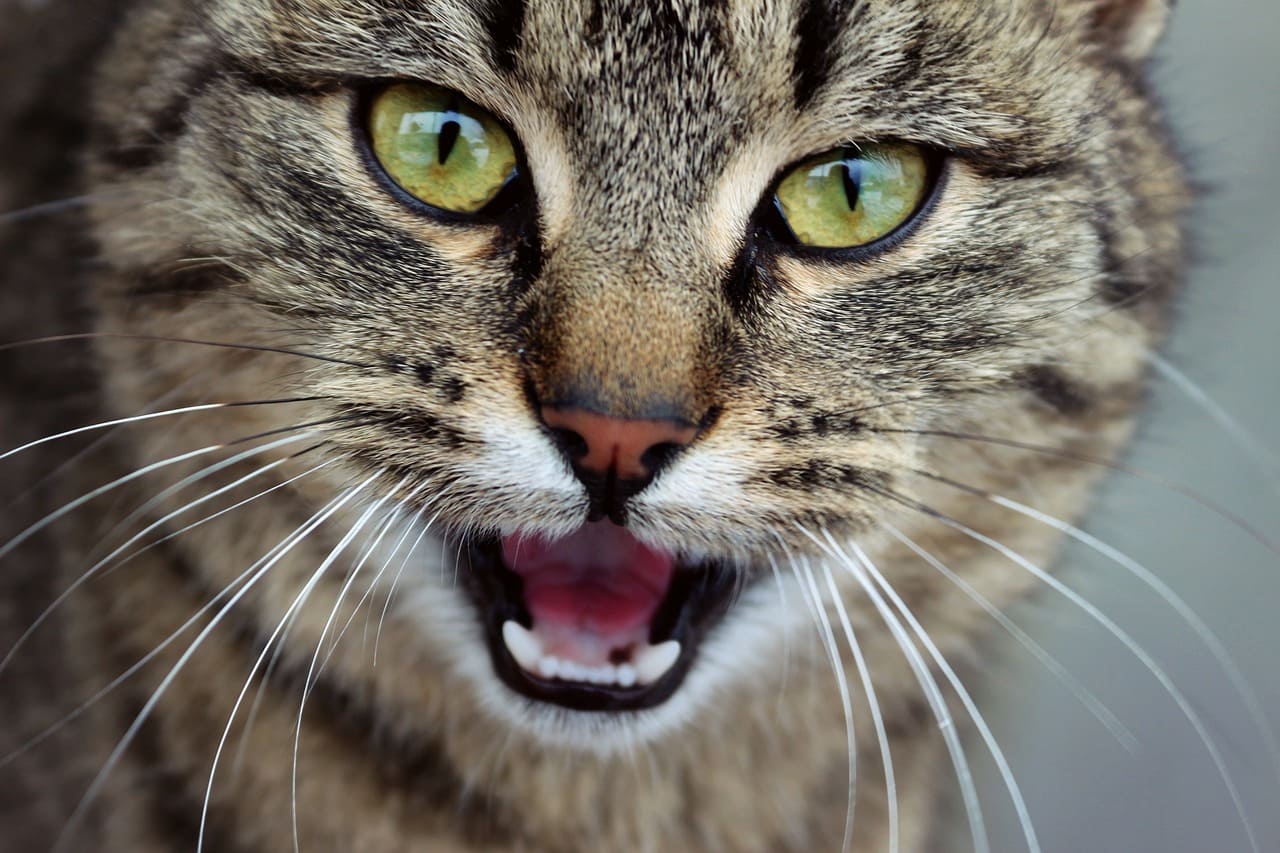
Since humans and cats don’t always speak on the same level, here are some signs you might have an unhappy cat on your hands.
The Ways Cats Tell You They’re Unhappy
1. Hiding and Avoidance
Cats are natural-born hiders. The level of their skill is astounding and can be alarming to the human who is looking for them. But, cats will come out of hiding when ready, usually for a snack or good snuggle.
Unhappy cats hide too, yet to the point of excluding themselves from normal life, refusing to come out of their shadowy refuge. Whether from fear or illness, a cat who no longer wants to hang out with his family is experiencing some sort of turmoil.
While hiding from visitors is normal, continual avoidance of loved ones is not. If your cat is going out of his way to avoid you and your love, you might be the source of the stress your cat is feeling. In an interview with the Guardian, anthrozoologist John Bradshaw explained why we might be causing our cats stress, “If cat owners understood their pets better, they’d recognize the demands we’re putting on them.”
Rather than chasing cats around for hugs they don’t want or snapping too many pictures for social media, spend some time examining your cat’s environment for reasons you’re cat might be annoyed with you.
2. Mopey Body Language
Body language indeed tells us much about a cat’s feelings. Its normal for them lash out when angry or rollover and purr when happy. But those are momentary reactions. If your cat constantly walks around on edge, avoiding her favorite chin rubs or playing with favorite toys, she’s telling you something by saying nothing.
Instead of verbally telling you, she’s using her body to speak. Watch her body language to pick up clues. Standing fur, ears pinned back, or a tail that is constantly lashing back and forth are just a few ways cats communicate distress. Watch for the postures of an unhappy cat. Make certain these behaviors are reactions and not a default setting. If the actions are constant, time to make some changes.
3. Litter Pan Disasters
One of the most obvious issues cat lovers notice when their kitty isn’t happy is litter box problems. A cat that starts urinating or defecating outside their pan is making their unhappiness known by leaving puddles and piles for you to clean. Issues can range from a dislike of litter brand to not feeling safe. Plus, discerning noses don’t care for any kind of stink and won’t dare put their paws in what they see as dirty dirt essentially. Keep the litter fresh and scooped and be sure there’s a pan for each cat. Add an extra litter pan to keep the purrsnickety cats pleased.
4. Too Much or Too Little Grooming
Cats are meticulous when it comes to their cleanliness. The pride taken in grooming reflects a cat’s care about their little persons. If suddenly your kitty stops taking care to keep paws and tails immaculate, check in with your cat and see what’s going on. Cats that stop bathing turn away from self-care for a reason, whether they’re depressed or ill.
Vest West Animal Hospitals said cats spend 30% of their time grooming. Beyond a want to feel clean, grooming can calm a cat when they feel out of sorts. But cats who spend too much time licking and preening their fur can cause baldness and skin irritation. If the vet can’t find a physical cause for overgrooming, the diagnosis may come as “psychogenic alopecia – a compulsive disorder usually brought on by stress or anxiety.”
If this is your kitty’s case, then its time to examine what factors are creating an unhappy cat.
5. Singing Sad Love Songs
Cats have a tendency to be dramatic, giving long and mournful meows to signal their displeasure. They like to cry out about their food bowls and its state of fullness, but sometimes that cry gets misinterpreted. If your cat seems to yell an over lot about food when the bowl is full, then he may be trying to tell you something else entirely.


